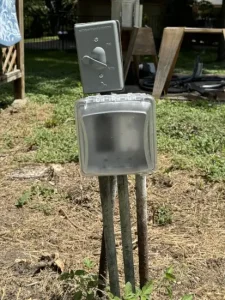Introduction to Pool Electrical Workings

Electricity is vital for the daily, ongoing functionality of your swimming pool. It is impossible for any pool to be healthy, appealing, and ready for action if its equipment is not connected to a working source of electricity. There are some other natural sources of energy that allow pool equipment to work, such as air, gravity, natural gas, and even the motion of water. However, these rely on electricity in order to fulfill their designed role in a pool or spa. Pump motors cannot run without electricity, as many people have discovered in recent years in North Dallas, when sustained freezing temperatures or winter precipitation have hindered or even halted the flow of electricity from provider to end user. Pool owners incurred hundreds of thousands of dollars of pool equipment losses in the wake of recent weather phenomena. When power is interrupted, the mechanical or computer-based systems cannot energize pool pumps and lose time or programming. Heaters, sanitizers, cleaners, lights – powerlessness affects them all.
The National Electrical Code (NEC) is the voluminous document that regulates electricity – every aspect of its installation and repair. There is a section solely devoted to the swimming pool industry. This is the code to which swimming pool installation and repair companies must conform in order to ensure the proper function of pool equipment, the integrity of a pool owner’s property, and the safety of bathers and pool repair technicians. The State of Texas requires anyone working on high-voltage pool equipment to undergo examination for a license issued by the Texas Department of Licensing and Regulation. Read about that license on our “The Power Team” page here.
Low-voltage equipment is connected to high-voltage equipment via transformers that reduce power from the source, similar to how a computer charging cable converts power from 120-volt alternating current (AC) to low direct current (DC) power required for energizing the device. While it may seem safer or less problematic and is thus not under the same regulatory umbrella, keep in mind that most transformed power feeds equipment that is highly-sensitive in nature, specialty equipment that is expensive to replace. Select Pool Services technicians have followed thoughtless technicians from other companies who mis-wired a simple 4-wire communication cable set, sending DC voltage down a wire intended only for command signals. The controller was ruined. While our techs aren’t perfect, we require them to be licensed and well-trained before they work on any current-carrying wires or devices.
Knowing the devices and their relationships with electricity is vital for any technician, and a homeowner can only benefit from understanding more about their electrical workings. Controls and switches, pumps, heaters, sanitization devices, lights, and most cleaning equipment receive and delegate electrical power in various ways to keep your pool clean, safe, and healthy. Learn more about your pool equipment and electricity on our Empowering Equipment page here.
